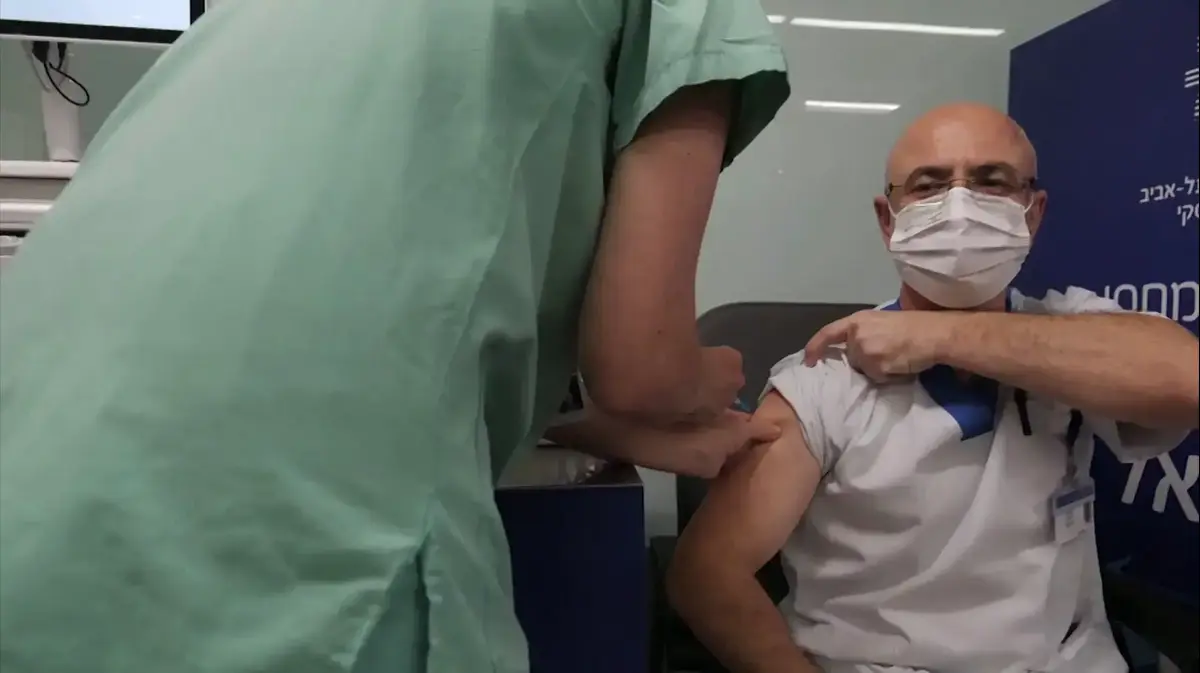Enlarge image
Vaccine from Biotech and Pfizer
Photo: Andrew Harnik / Getty Images
Around 987,000 people were vaccinated in Germany on Wednesday.
80 percent of them got the booster refresh.
The vaccine from Biontech and Pfizer is used most often.
In addition, Moderna and Johnson & Johnson are also inoculated in this country.
There are around two dozen vaccines around the world, and hundreds are being developed.
The World Health Organization (WHO) has already recognized seven vaccines as effective and safe and is reviewing more.
According to the WHO, more than 130 corona vaccines are already being clinically tested, and almost 200 more are in preclinical development.
And since the new Omikron variant became known, manufacturers have announced that they may adapt their vaccines.
Do you really need that many vaccines?
"No," says Jakob Cramer, head of clinical development at Cepi, a coalition of governments, WHO and manufacturers.
Cepi has co-financed around a dozen corona vaccines.
The research must continue at a high pace because: "90 percent of the candidates fall by the wayside."
And the need is great.
Poorer countries need products that can be kept for a long time even without freezing.
Background: The newly developed mRNA vaccines from Biontech and Moderna have to be stored at low temperatures.
"Our job is to save as many lives as possible," says WHO vaccination expert Bruce Aylward.
Research is therefore being carried out on other vaccines in Germany, China, the USA, India, but also Turkey, Vietnam, Thailand and other countries.
Perhaps there will be a vaccine in 2022 that will protect people who have been vaccinated against transmitting the virus, unlike today, says Cramer.
Research is also being carried out into how immunocompromised people can be better protected, or into vaccines that can be administered as nasal sprays.
There is something like that as a flu vaccination in some countries.
In 2022, the starting position will also be different from the development of the first Covid-19 vaccines.
Then a large part of the earth's inhabitants will probably have antibodies through vaccination or natural infection.
You have to check whether booster vaccinations in lower doses are sufficient, says Cramer.
One focus is also to find a vaccine that provides comprehensive protection against Sars-CoV-2 and other so-called beta coronaviruses at the same time.
Better prepared for the next pandemic
The next pandemic is sure to come, probably with a different respiratory virus.
"We think a lot about what the next pandemic threat could be," says Hamilton Bennett, director of vaccine access at US corona vaccine manufacturer Moderna.
The WHO keeps a list of around a dozen pathogens that could pose a threat.
Moderna is researching the properties of almost all of these virus families and is already conducting studies.
“If a dangerous strain of virus emerges in the family, we can be very quick,” says Bennett.
Then a ready-to-use vaccine could be ready in 100 days or even less.
This is possible thanks to the mRNA technology used for the first time in some Covid-19 vaccines, said Bennett.
During the vaccination, body cells receive the blueprint for a small part of the virus, which expires after a short time.
The cells then produce this so-called spike protein themselves, whereupon the immune system forms antibodies against the pathogen.
In the case of a different virus, a different blueprint would be used, but the process would remain the same, Bennett said.
Everything could go faster in the future
If authorities recognize the process as safe and only change the blueprint for new pathogens, lengthy studies will no longer be necessary, said Bennett.
Moderna and Biontech are currently examining whether the blueprint in their vaccines needs to be changed because of the newly emerged Omikron variant.
It would be the first time since the start of the vaccination campaigns with mRNA vaccines around a year ago that the two vaccines would have to be changed for mass vaccinations due to a spreading new corona variant.
fww / dpa











